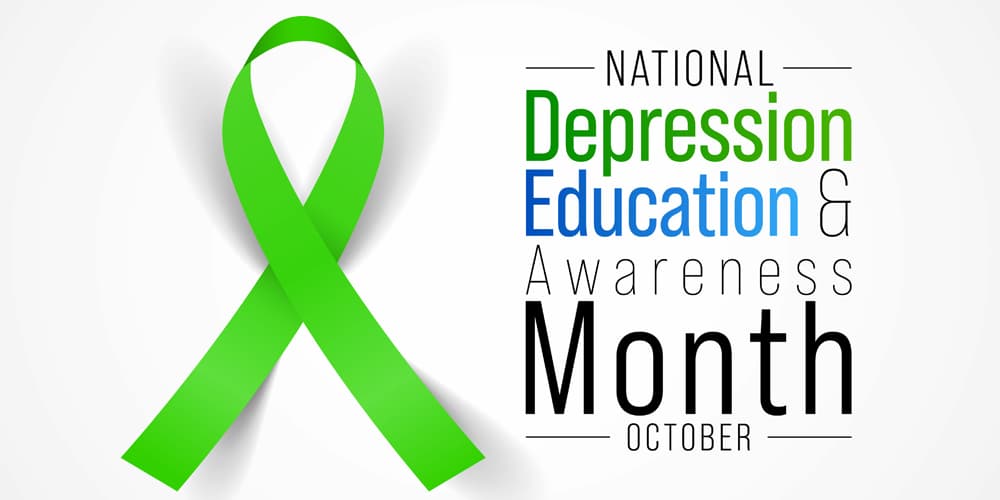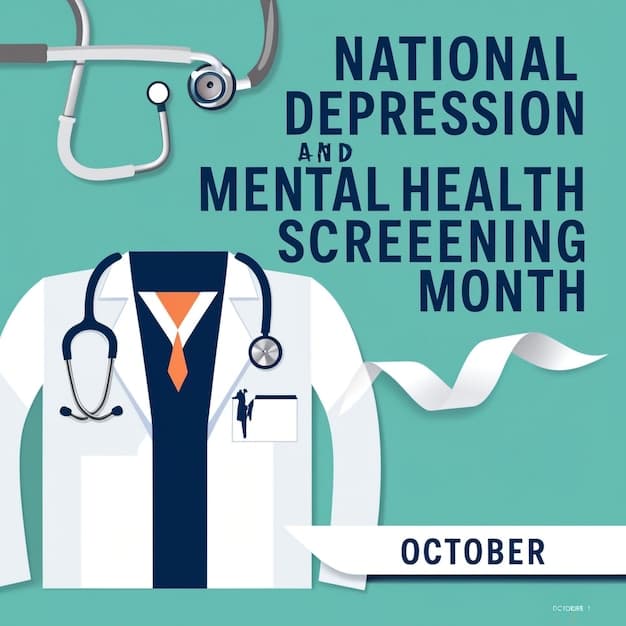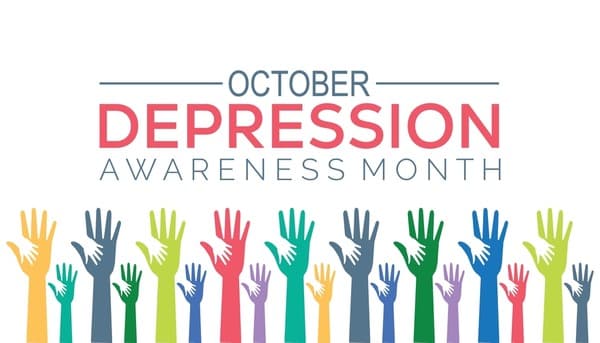The Importance of National Depression Screening Month
October is National Depression Screening Month. Learn why depression screening matters, how to recognize signs, and where to get help. Early detection can save lives.

Dr. Vicki Bolina
Executive Clinical Director

Each October, mental health professionals and healthcare organizations observe National Depression Screening Month—a campaign designed to raise awareness about depression and encourage early screening and intervention.
As a psychologist, I witness every day how depression can quietly and powerfully affect individuals across all walks of life. It impacts not just emotions, but so much more, including physical health. But yet, depression is often misunderstood, and untreated.

October is National Depression and Mental Health Screening Month
Why Depression Screening Matters
Depression is one of the most common mental health disorders worldwide. The World Health Organization (WHO) reports that over 280 million people globally live with depression, making it a leading cause of disability (1).
In the United States, the National Institute of Mental Health (NIMH) estimates that approximately 21 million adults experienced at least one major depressive episode in 2021 (2). Yet many do not recognize the signs of depression, or they may minimize their symptoms, believing it's just stress, burnout, or "sadness that will go away eventually".
Depression screenings offer a simple way to determine if you or someone you care about may be struggling with more than just sadness. These screenings are brief, and designed to identify depressive symptoms early.
They are not diagnostic by themselves, but they are an important first step toward understanding your mental health and deciding whether to seek professional help.
Recognizing the Signs of Depression
Depression is more than "just feeling sad".
Some common symptoms include:
- Persistent sadness or low mood
- Loss of interest or pleasure in activities
- Changes in appetite or weight
- Sleep disturbances (insomnia or hypersomnia)
- Fatigue or low energy
- Difficulty concentrating or making decisions
- Feelings of worthlessness or excessive guilt
- Thoughts of death or suicide
Even mild symptoms—when left unchecked—can escalate. The earlier depression is recognized, the more effectively it can be treated.

Depression symptoms and warning signs
Barriers to Seeking Help
Many people feel ashamed, or worry they'll be judged, or assume their symptoms aren't "serious enough." Cultural beliefs, gender roles, financial limitations can also all contribute to delays in seeking help.
That's why National Depression Screening Month is so critical. It normalizes mental health conversations and encourages people to prioritize their emotional well-being. There is a free screening that is readily available for all to use from Mental Health America and it is something tangible that you can take with you to start a conversation with your primary care doctor or when calling in to make an appointment with a mental health professional.
How to Take Action This October
1. Take the Free, Confidential Depression Screening
Mental Health America offers clinically validated online depression screenings year-round (please click on the link below):
https://screening.mhanational.org/screening-tools/depression
2. Check In With Others
You never know who might be silently struggling. Ask open-ended questions like, "How have you been feeling lately?"
3. Share and Educate
Use your social media or community spaces to share verified resources, and normalize mental health check-ins and the depression screening.
4. Seek Professional Support
If a screening suggests you may be dealing with depression—reach out. Psychologists, therapists, psychiatrists, and primary care physicians can all help you.
Depression Treatments Work
The good news is that depression is highly treatable. A combination of psychotherapy, such as Cognitive Behavioral Therapy (CBT), and, in some cases, medication, has been shown to significantly reduce symptoms.
Mental health is an essential part of overall health. Just as you wouldn't ignore chest pain, you shouldn't ignore ongoing emotional pain. Depression screenings during National Depression Screening Month—and every month—are a simple yet powerful way to start healing and reaching out for help. If you are looking to learn more about depression, please consider speaking with one of our providers at Hope WMC.
Please click on this link Our Providers.
If You're in Crisis or Need Support Now:
988 Suicide & Crisis Lifeline
Call or text 988 anytime – 24/7, free and confidential
Crisis Text Line
Text HOME to 741741
https://www.crisistextline.org/
References
- World Health Organization (2023). Depression. Retrieved from: https://www.who.int/news-room/fact-sheets/detail/depression
- National Institute of Mental Health (2022). Major Depression. Retrieved from: https://www.nimh.nih.gov/health/statistics/major-depression
Dr. Vicki Bolina Executive Clinical Director Clinical Psychologist

About Dr. Vicki Bolina
Executive Clinical Director
Licensed clinical psychologist specializing in adolescent and young adult mental health.